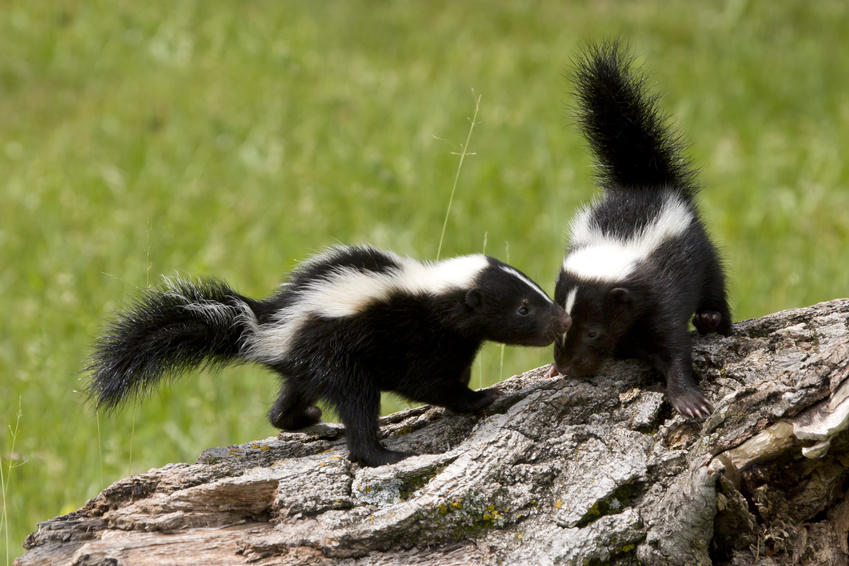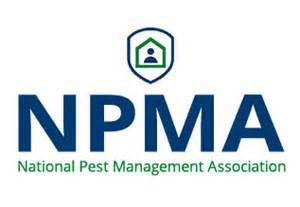Winter may be the time of year when most wildlife hides from the outside world, but not all creatures shy away from the cold. Skunks are among the few who tend to follow the beat of a different drum, choosing February through March as their primary mating season.
While this may seem like little cause for alarm, these foul-smelling animals are increasingly transitioning into suburban life and wreaking havoc on neighborhoods across northern Illinois.
Why Should Local Homeowners Be Worried?
Once skunk mating season rolls around, skunks’ nesting instincts kick in, and they begin looking for safe, cozy places to raise their families. As the human population continues to grow and spread into what was once the skunks’ natural habitats, they’re forced to seek shelter elsewhere, meaning they take up residence with people.
Skunks are notorious for their defensive, and offensive, spraying capacity. They have incredibly accurate aim, and muscles near their odor glands allow them to hit targets from as far away as ten feet. If the smell isn’t enough to prompt keeping your guard up, they’re also capable of causing plenty of damage.
What Types of Damage Can Skunks Cause?
Aside from being noxious and potentially nausea-inducing, skunk spray can be somewhat dangerous. It’s been known to cause skin and respiratory inflammation and can even lead to blindness if it comes in contact with the eyes. This is only the beginning.
- Scattered Trash: Like all living creatures, skunks need to eat. When they choose to share your home with you, they also piggyback off your food supply. Trash cans are prime dining establishments for them, and they’re not inclined to clean up after themselves when they find a meal.
- Landscape Destruction: Skunks are burrowers by nature, so they often tear up lawns and uproot shrubbery when seeking out safe places to give birth and raise their kits.
- Property Damage: Being fairly shy animals who like to keep to themselves when possible, skunks generally look beyond the lawn for asylum. Near homes’ foundations, under porches and raised decks and in the confines of crawlspaces offer perfect safe havens for them if they’re available. With ample determination and small-but-sharp claws at their disposal, skunks can tear through underpinning, vent screens and a number of other materials when motivated.
- Household Demolition: Although skunks prefer burrowing underground in the great outdoors, they’ve also been known to move into attics in moments of desperation. Inside the home, their smell becomes unbearable. Urine and fecal contamination make their way into the picture, and they’ll even tear up insulation and rip through electrical wiring.
- Gardening Woes: While skunk mating season takes place during late winter, they’ll linger for the long haul if not removed promptly. For those who plant gardens during springtime, this could result in an ongoing feast for skunks and a disappointing harvest for homeowners.
As cosmetic issues, damaged underpinning and landscaping can be repaired with time, money and effort. Should skunks burrow underneath your foundation or other structural elements, settling could take place and lead to more extensive damage. On top of all that, if skunks are on your property, run-ins with people and pets are bound to happen, and they generally don’t end well.
What Can Be Done to Prevent a Skunk Invasion?
As fate would have it, skunks are a protected species in the state of Illinois, so you can’t harm them even if they’re trespassing on your property. Trapping and releasing them back into the wild is a more humane alternative, but you’ll need a trapping license for this route. Keep in mind, a scared skunk is a spraying skunk, so even if you do acquire a trapping license, you’re vulnerable to their natural defense mechanisms.
In spite of those hurdles, all hope isn’t lost. You can take preventative measures to discourage skunks from choosing your home as their own.
- Shed Light on the Subject: Skunks are nocturnal and prefer to carry on their daily activities at night. Keeping your yard well lit could go a long way toward keeping them at bay.
- Take away Potential Food Sources: Your trash is a skunk’s dining treasure, so move garbage cans into the garage at night if possible. If not, opt for locking lids. Bring pet food indoors at night, and remove bird feeders during skunks’ late winter mating periods. If you have fruit and nut-bearing trees, rake the lawn often to keep it cleared.
- Block Them: Skunk-proof metal mesh is available in rolls at hardware and home improvement stores as well as online. Install it around raised decks and porches, tools sheds and other structures skunks could potentially use for shelter. It can also be buried around your home’s foundation if you’re willing to revamp your landscaping in the process.
- Over-the-Counter Deterrents: Pepper spray and ammonia have both been said to drive away skunks though a number of people argue against their effectiveness. If you resort to these measures, you’ll be battling the snow, so frequent reapplications will be necessary. Bottled synthetic predator urine is also widely available, but if you have a dog, you have a strategic advantage.
None of these methods are truly foolproof. Deterring scents fade despite your best efforts to keep them strong. Taking away human-generated food sources may present skunks with an interesting challenge, but nature tends to fill in the gaps. Keeping your lawn brightly lit could be considered the most effective option; still, a skunk in search of shelter for her young is a determined one.
Call in the Professionals
If you notice the telltale sulfuric stench repeatedly permeating your property during the weeks to come, you could have a family of as many as 12 skunks taking over your home within a couple months’ time. Man-made regulations and the laws of nature greatly limit the power people have over the local skunk population, but a skunk removal specialist in northern Illinois can help.
Experts advise against trying to remove skunks on your own due to the potentially harmful nature of their spray. Being proactive may help deter them, but it won’t guarantee your immunity to an invasion. Call in a professional for more information on preventative measures or for help with getting skunks off your property.



Recent Comments